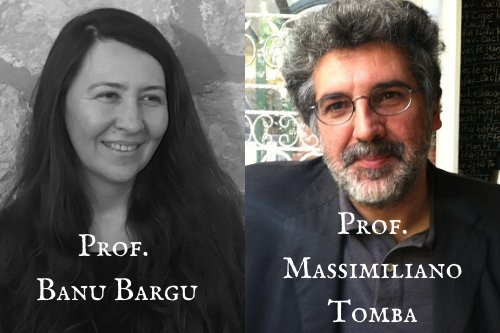History of Consciousness Associate Professor Banu Bargu has been named a fellow of both the American Council of Learned Societies and the Institute for Advanced Study School of Social Sciences for the 2020-2021 academic year.
The fellowships will enable Bargu to focus on completing her book, Corporeal Politics: Violent Uses of the Body in the Present. The book culminates several years of research on ways the human body has been employed to spark political change or as a medium for expression.
“I’m really excited to be able to devote the next year to his project,” Bargu said. “I feel it's really time to bring this to fruition.”
The Institute for Advanced Study, based in Princeton, brings together scientists and scholars to extend human knowledge. The American Council of Learned Societies awards fellowships recognizing excellence in research in the humanities and social sciences that employ humanities-related methods.
Bargu’s project draws on the approaches of disciplines including anthropology, political science, and cultural studies.
“It’s a book about people using their bodies in struggles against oppression,” Bargu said.
Read more about Prof. Bargu's fellowships here.
History of Consciousness professor, Massimiliano Tomba was awarded a fellowship at the Shelby Cullom Davis Center for Historical Studies, Princeton University, for 2020-21.
The title of prof. Tomba's project is “Revising Revolution” and this is the abstract:
"What is the temporality of revolution? Reading revolutions through the prism of a concept of history that is not teleological or unilinear but is instead structured as a pluriverse of historical temporalities, allows me to show how different temporalities and semantic stratification of revolution are reactivated in historical revolutionary moments. From this perspective, in the concept of revolution, the ancient notions of revolutio, restoration, and restitution are not erased but coexist as temporal stratifications that can be and have been reactivated in specific historical events. My analysis is articulated through the following guiding perspectives and historical cases: the German peasant war of 1525, the Diggers during the English Revolution, the German Revolution of 1919, the 1994 Zapatista insurgency and, more recently, the Water War in Bolivia in 2000."

